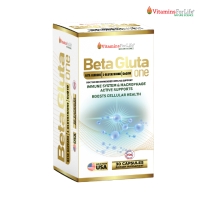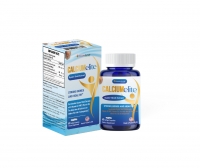The mycelium is where the mushroom magic lies (and what you’ll find much more concentrated and potent in extract or supplement form). And it just might be your immune system’s knight in shining armor this cold and flu season.
Mushrooms as Medicine
Traditional Chinese medicine has used fungi to support health for thousands of years, discovering along the way that different mushrooms have different medicinal values. Some widely used drugs in Western medicine come from fungi, penicillin being the most famous example. And today, Western science is taking a renewed interest in possible fungi health benefits.
Paul Stamets, DSc, one of the world’s leading mycologists and author of Mycelium Running: How Mushrooms Can Help Save the World (Ten Speed Press), estimates that 150,000 species of mushrooms exist. He says about 5% have “interesting nutritional or medicinal properties” and many more have yet to be studied.
Some mushrooms are believed to have antiviral, antibacterial, anti-inflammatory and antioxidant benefits, and may be potentially useful in treating and preventing a number of diseases, from cancer to Alzheimer’s disease. These mushrooms may also support healthy immune systems in both the healthy and the ailing.
Mushrooms and Immunity
“We are all under immune assault from bad food, air pollution, stress, obesity and even the fact that we live longer,” Stamets notes. He believes, along with other leading mycologists and backed by a growing number of studies, that medicinal mushrooms may play a key role in bolstering immunity.
The first Chinese pharmacopeia, written more than 5,000 years ago, discusses the healing properties of mushrooms, explains Andrew Miller, co-author (with Georges Halpern) of Medicinal Mushrooms: Ancient Remedies for Modern Ailments (M. Evans and Company) and director of the mushroom-growing facility Functional Fungi. But how do they affect the immune system in particular?
“They activate different aspects of the immune system and trigger immune responses,” Miller says. “Everything lights up like a Christmas tree, and the immune system becomes more alert.” He explains that medicinal mushrooms have high levels of polysaccharides, branchlike chains of sugar molecules shown to have immune-activating and tumor-fighting properties. What’s more, different types of mushrooms potentially carry different types of polysaccharides, each working on different aspects of immunity.
“Some activate T cells, some activate natural killer (NK) cells,” Miller says, referring to types of white blood cells that play a central role in immune response. “It’s all about priming the immune system for optimal behavior.” This gives medicinal mushrooms the potential to act as a barrier to common cold-weather respiratory infections as well as helping people who are already sick.
Anti-Cancer Potential
The ability of mushrooms to boost the immune response also gives them a potential role in battling cancer. According to Stamets, who was involved in the study “Phase 1 Clinical Trial of Trametes versicolor in Women with Breast Cancer” (ISRN Oncology Journal 2/16/12) and is on the advisory committee of the trial’s second phase, the power of medicinal mushrooms runs deep. In this study, T. versicolor (also known as turkey tail because of its appearance) improved the immune system in immunocompromised breast cancer patients.
Stamets has also witnessed the power of mushrooms first-hand when his mother was diagnosed with stage 4 breast cancer and given three months to live. He says she took turkey tail and that now, more than three years after her diagnosis, she continues to have no detectable tumors.
“Immune function is where mushrooms have a sweet spot,” Stamets says. “They can increase the ability of the immune system to prepare and react to invasive disease, especially those that are microbial or lead to cancer.”
Miller explains that diseases such as cancer impair the body’s ability to digest and absorb nutrients, which can weaken the immune system. Some mushrooms can help by kicking immunity back into gear.








